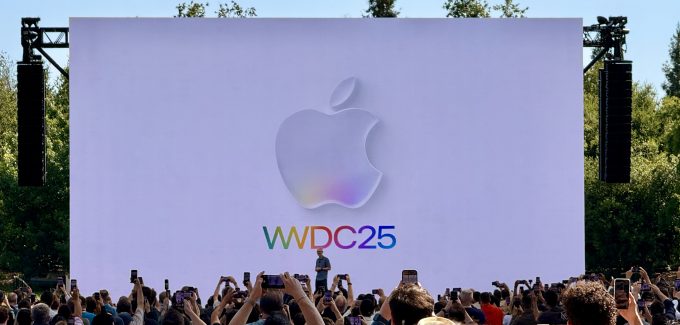Initially embraced by cryptocurrencies such as Bitcoin, blockchain technology has developed much beyond its initial use supporting digital currency. Blockchain is being embraced by a variety of businesses today; the banking sector and online gaming companies lead the way. Blockchain is altering how money moves across networks, how people engage with financial institutions, and how people gamble online by providing a distributed, open, and safe means of tracking and confirming transactions. The emergence of bitcoin casino and crypto casino platforms - which use blockchain's advantages to provide safe, quick, and anonymous transactions - showcases this change, especially in websites such as https://lietuvosonlinekazino.com/kripto-kazino, underline the rising popularity of crypto-powered gaming and crypto kazino, therefore enabling players to enjoy a flawless, open, and distributed gaming experience.
The transforming power blockchain is providing for the banking industry as well as online gaming will be discussed in this paper.
Blockchain's Effect On The Financial Industry
Long depending on centralized institutions such as banks, stock exchanges, and payment providers, the financial sector is changing significantly with blockchain technology. For financial organizations trying to increase openness, cut fraud, and minimize running costs, blockchain's capacity to provide safe, unchangeable records of transactions free from intermediaries' appeals.
By offering a quicker, less expensive, more safe substitute for conventional means, blockchain is transforming cross-border payments. Because of hefty transaction fees, currency rate swings, and delays brought on by middlemen like banks and payment processors, historically moving money across borders has been costly and time-consuming.
Blockchain reduces transaction time and processing time by removing the need for several middlemen, lowering their cost. For example, instant, low-cost international transactions are already enabled by blockchain-based payment platforms such as Stellar (XLM) and Ripple (XRP). Globally trading, remittances, and financial transfers all benefit much from these blockchain-based systems.
Enhanced Safety and Preventive Fraud Management
In the financial sector, security is a key issue particularly considering the growth in cybercrime and identity theft. By means of cryptography to protect transaction data, blockchain provides a more degree of security than conventional systems. Every transaction on a blockchain is encrypted and appended to a block linked to the one before it, therefore forming an almost unchangeable chain of blocks.
This distributed ledger guarantees that data isn't kept in one place, therefore reducing hacker vulnerability. Blockchain's openness also enables all transactions to be publicly checked, therefore facilitating the identification of fraudulent conduct and guaranteeing the integrity of financial institutions.
Tokenizing of Resources
Real-world assets including real estate, commodities, even art are being tokenized thanks to blockchain technology. By means of tokenization, ownership of these assets can be split into digital tokens, therefore facilitating the investment in high-value assets without requiring large cash. Blockchain guarantees the security and openness of these tokens, therefore enabling fractional ownership and liquidity in hitherto nonliquid marketplaces.
Through tokenized assets, for example, individuals might invest in fractions of a high-value real estate property or artwork, expanding investment possibilities for a worldwide audience.
Blockchain's Effect on Online Gaming
Blockchain technology has been fast embraced by the online gambling sector to improve player experience, boost openness, and raise confidence. Blockchain is being included into operations of online casinos and sportsbooks in order to handle long-standing problems such data security, payment delays, and fairness.
The most clear connection blockchain has to online gaming is its usage of Bitcoin payments. Widely accepted in blockchain-powered casinos, cryptocurrencies such Bitcoin, Ethereum, and others provide a variety of benefits over conventional payment systems including credit cards and bank transfers.
For players, cryptocurrencies provide lower fees and faster, safer transactions. Blockchain transactions let players swiftly deposit and withdraw money, usually without the long processing delays connected with conventional banking systems, since they do not call for third-party intermediaries. Since they are typically pseudonymous, meaning players do not have to provide private personal information to online gambling companies, cryptocurrencies also offer a degree of privacy.
Accepting cryptocurrency will assist operators in lowering the expenses related to chargebacks and excessive transaction fees in payment processing. Since Bitcoin transactions are not limited by local laws or regional boundaries, they also extend the gambling experience to a worldwide audience.
Privacy and Security
The nature of the financial transactions involved in online gambling makes it an ideal target for hackers and fraudsters. Blockchain gives distributed transaction verification and encryption, hence improving security. By allowing transactions to be carried out anonymously, blockchain can also guard consumer privacy.
Apart from guaranteeing payments, blockchain technology helps to guarantee that private and inaccessible to illegal parties sensitive customer data including account details and game history is maintained. Blockchain's distributed character makes it more difficult for hackers to compromise a whole system, thereby providing more strong security for internet gambling.
Blockchain's Prospect in Gambling and Finance
Blockchain technology's effects on the banking industry as well as online gaming will only get more pronounced as it develops. Blockchain is challenging established banking in finance by providing fresh lending, investment, and remittance methods. Blockchain offers to transform the online gambling sector using more transparent, safe, and practical solutions.
Ultimately, blockchain is transforming industries, including finance and online gambling, rather than being a disruptive technology for cryptocurrencies. Its advantages - such as lower costs, better security, and greater openness - will keep changing how companies and consumers engage with these sectors as it becomes increasingly included in mainstream systems.















